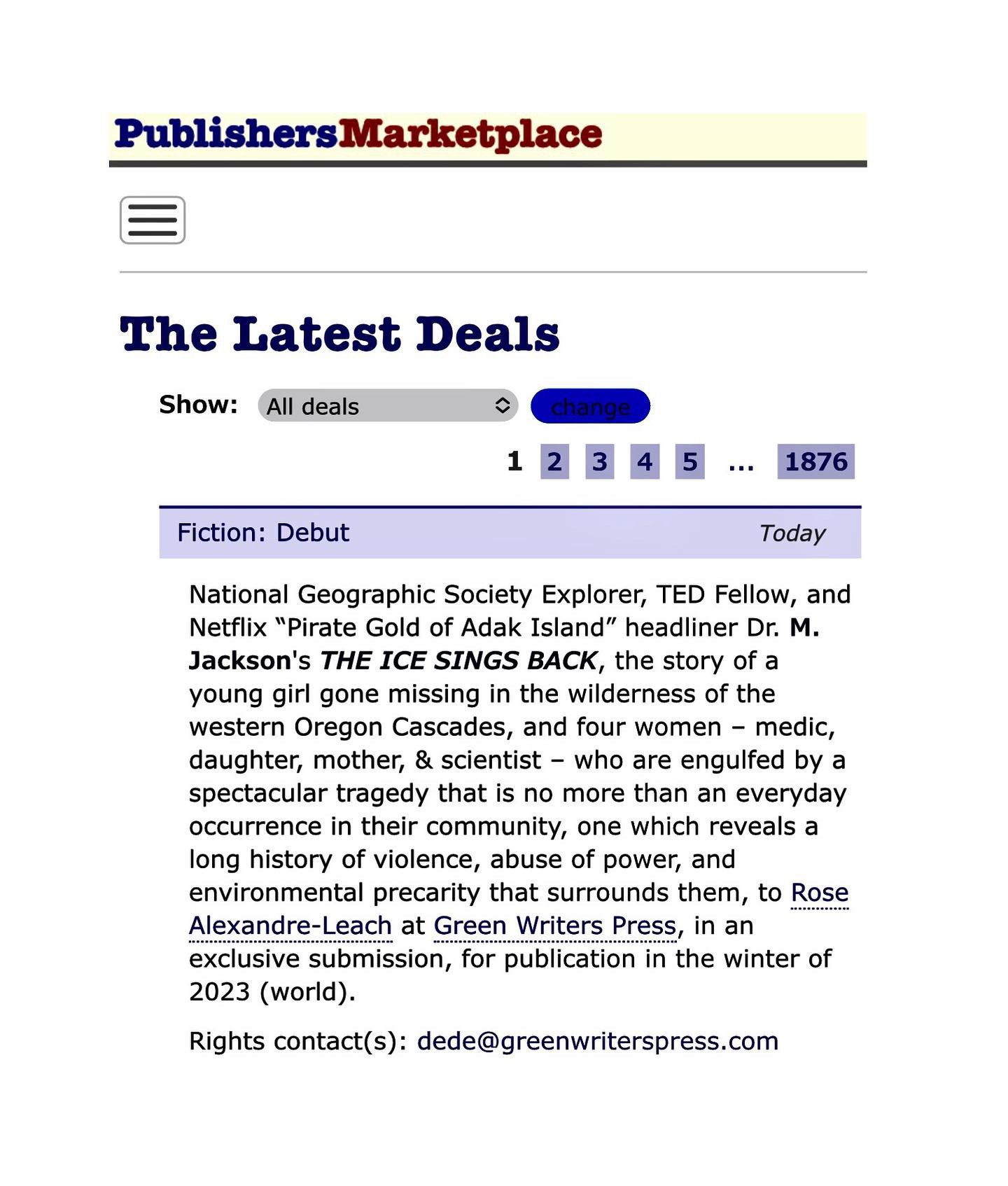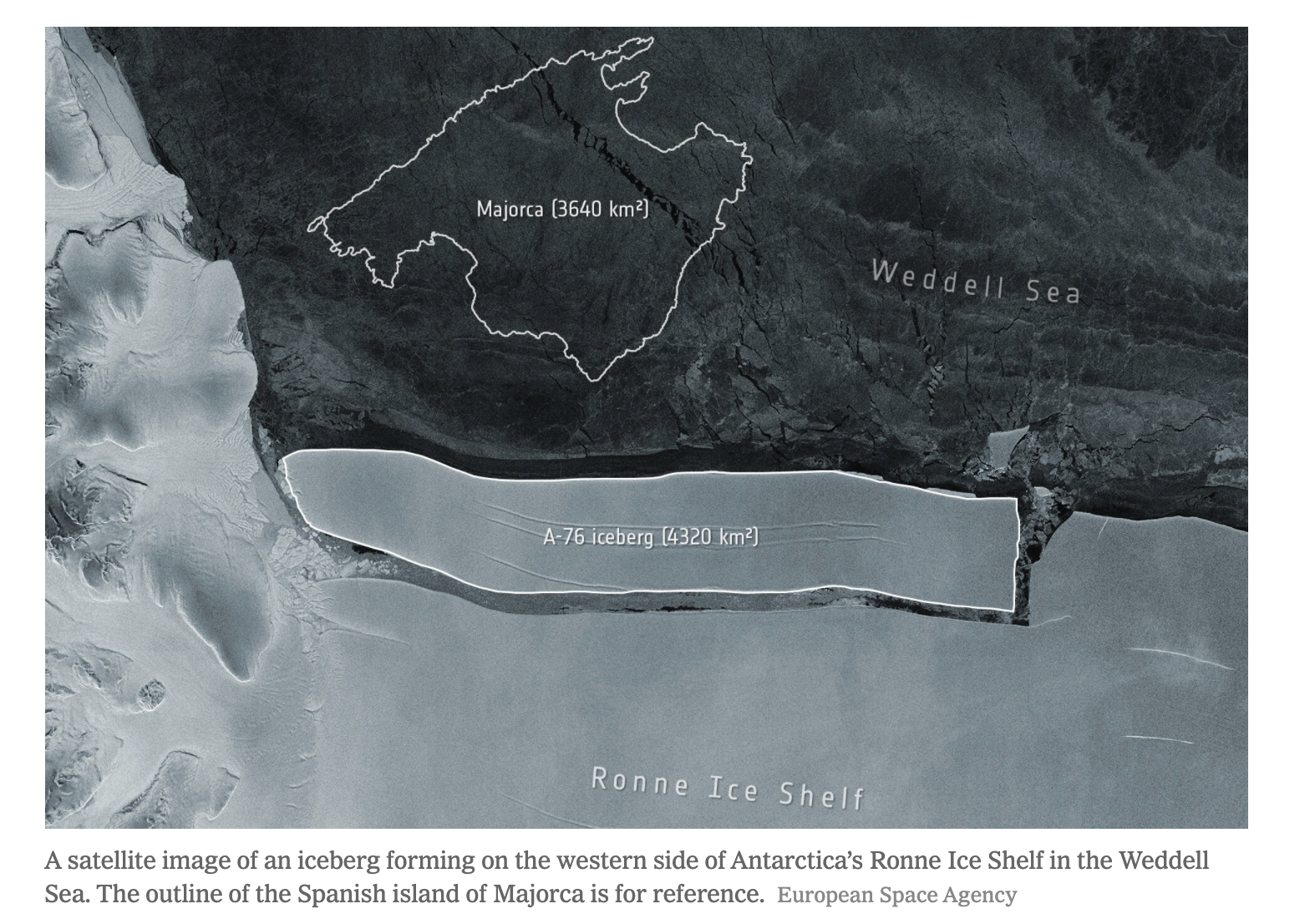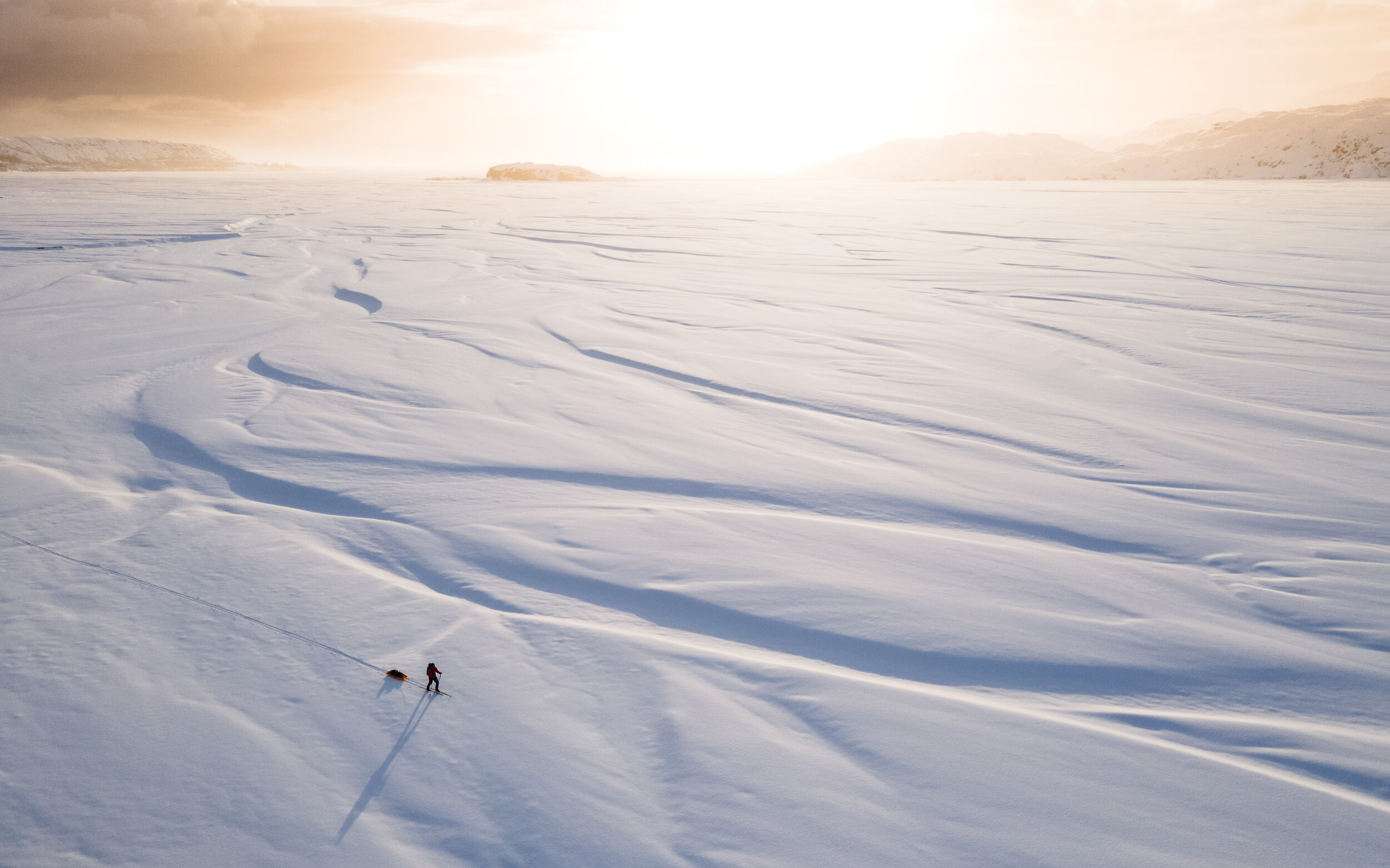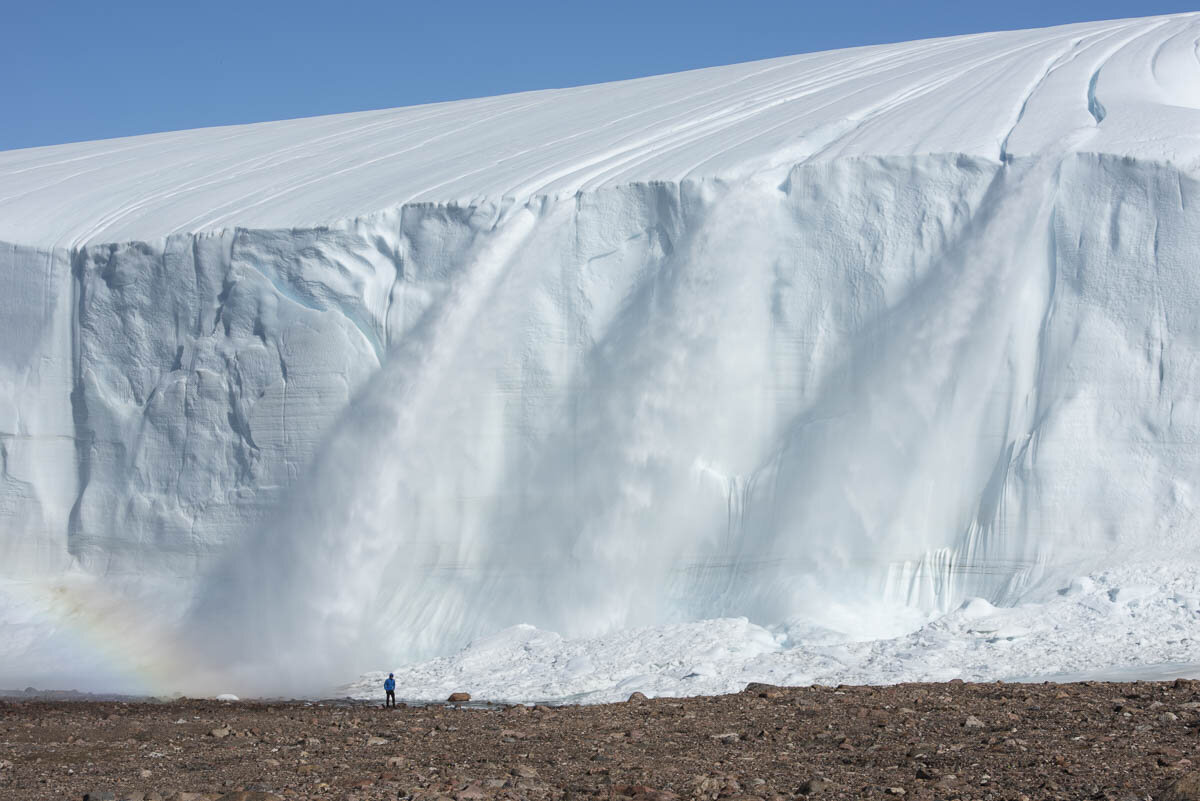When a young girl goes missing in the remote wilderness of the western Oregon Cascades, her disappearance sets off a chain of events that reveal a long history of violence, abuse of power, and environmental precarity. This is a story of how four women make sense of the everyday extraordinary traumas that contour their lives, and how their individual strengths come together to sing a fierce hymn of survival.
Crash Course Climate and Energy, Preview. Hosted by M Jackson
Welcome to Crash Course Climate and Energy! Over the next 12 episodes, we’re going to take a look at the ways climate change is affecting our planet, untangle the evolving energy landscape, and learn to think critically about how we, as individuals and as a society, can affect the outcomes. Navigating the politics of climate science is challenging, and such a daunting global issue can feel overwhelming. But there is hope! We’re going to help you understand some of the solutions we can employ to help decarbonize our energy sources and address global climate issues. Episode 1 premieres on 12/7/2022
Crash Course Climate and Energy, Episode 1. Hosted by M Jackson
We know that temperatures on Earth have fluctuated dramatically in the past, but we also know that by burning fossil fuels we are causing temperatures to rise faster than ever. In this episode of Crash Course Climate and Energy, we’ll introduce some core concepts that will help us throughout the series, like the difference between climate and weather, and take a look back through the Earth’s history at other periods of significant climate change.
M Jackson on University of Oregon DUCK Podcast
Episode Description
https://open.spotify.com/episode/0cGTz5AVO26mriS8j3ErxK?si=oznbpoCsSxiE1IfAuONYJQ
While some of us spent the long days of the early pandemic cleaning out the refrigerator or adopting a puppy, others – like Dr. M Jackson – spent it searching for a hidden hoard of pirate gold in Alaska. The adventure, filmed in summer 2020 and chronicled in the hit 2022 Netflix series Pirate Gold of Adak Island, is but one of many far-flung locales that this UO grad has traveled in her exciting career in search of what the earth can reveal. Indeed – as a geographer, glaciologist, National Geographic Explorer, Fulbright Ambassador, TED Fellow, Peace Corps volunteer, and author – Dr. Jackson’s life has mostly been about seeing and doing things differently than many of her peers. Earning her doctorate from the UO in 2017, Dr. Jackson explored how climate change transformed people and glacier communities in Iceland. A staunch advocate of communicating science in ways that resonate outside of the Academy, Dr. Jackson worked for more than a decade in the Artic, chronicling climate change, communities, and glacial systems. Her sustained interrogation of “who gets to practice glacial science” still forms the backbone of her professional practice. Dr. Jackson is interviewed on the podcast by Dr. Hollie Smith, Associate Professor of Science and Environmental Communication and Associate Director for the UO Center for Science Communication Research. As two women who have reflected deeply about “what knowledges” are permitted in the scientific realm and how scientific discoveries are shared with the public, their captivating conversation will naturally connect with scientists and non-scientists alike. Dr. Jackson’s 2015 memoir, While Glaciers Slept: Being Human in a Time of Climate Change, knits together stories of climate change in both family and planet. Her 2019 book, The Secret Lives of Glaciers, examines the profound impacts of glacier change on the human and physical geography of Iceland. Her forthcoming (and first) novel, The Ice Sings Back, is set in the Pacific Northwest, where M – in between travels to ice around the world – makes her home with her husband and young son.
M Jackson new Climate and Energy host for Crash Course
Welcome to Crash Course Climate and Energy! Over the next 12 episodes, we’re going to take a look at the ways climate change is affecting our planet, untangle the evolving energy landscape, and learn to think critically about how we, as individuals and as a society, can affect the outcomes. Navigating the politics of climate science is challenging, and such a daunting global issue can feel overwhelming. But there is hope! We’re going to help you understand some of the solutions we can employ to help decarbonize our energy sources and address global climate issues. Episode 1 premieres on 12/7/2022
Meet the host of our upcoming Climate & Energy series, Dr. M Jackson
Meet the host of our upcoming Climate & Energy series, Dr. M Jackson. She's a glaciologist, writer, and National Geographic Explorer -- and a cold weather enthusiast! Anyone else? Raise your hand if you love cold weather!
THE IMPORTANCE OF GLACIERS
National Geographic Society Explorer M Jackson to give University of Delawares’s 2022 John R. Mather Lecture
Many years ago, as she worked as a backcountry guide in southeast Alaska, M Jackson recalls having a lot of questions about ice. There was just one problem: she couldn’t seem to find anyone who could provide her the answers.
One day, while guiding a group of National Geographic photographers, who were out photographing birds, her persistent questions about ice changed her life forever.
“I thought, ‘These people are very smart, and they know all this stuff about birds, so of course they’ll know stuff about glaciers,’” said Jackson. “So I asked them about these glaciers, and the magic moment for me was when they said to me, ‘These are great questions. You should answer them.’ I never had anybody tell me that before.”
National Geographic: Geography Awareness Week
Geography helps us to understand and engage with the world around us. Supporting science, exploration, education, and storytelling—and understanding geography—is more important than ever.
The geographic perspective is at the core of our work at National Geographic Society.
It’s a way of looking at the world, a way of understanding why things are where they are and how people’s movements and cultural, societal, and political interactions and movements impact all of us.
Read more: https://www.nationalgeographic.org/society/geography-awareness-week/
M Jackson Releases Debut Novel January 2023
NETFLIX Releases New Series Pirate Gold of Adak Island
DECIDER June 29, 2022 // 6:15pm
PIRATE GOLD OF ADAK ISLAND: STREAM IT OR SKIP IT?
Opening Shot: A camera pushes in over the water to a small island. “Adak, Alaska, rising up from the middle of the Bering Sea,” says narrator Jeff Wilburn.
Our Call: STREAM IT. If you’re turned off by the “tough guy” energy of shows like Gold Rush, you’ll enjoy the relatively laid back pace of Pirate Gold Of Adak Island.
CBS Mornings - Glaciologist shows just how fast Iceland's glaciers are melting
Scientists say more than 1.2 trillion tons of ice per year are lost to warming temperatures globally. For a nation named after the very stuff that's disappearing, that's forcing difficult conversations. Ben Tracy reports. Air Date: Oct 8, 2021
Iceberg Splits From Antarctica, Becoming World’s Largest
An iceberg nearly half the size of Puerto Rico that broke off the edge of Antarctica last week is now the world’s largest, researchers said.
The iceberg, known as A76, following a naming convention established by the National Ice Center, naturally split from Antarctica’s Ronne Ice Shelf into the Weddell Sea through a process known as calving, the center said.
It measures about 1,668 square miles (4,320 square kilometers), making it larger than A23a, an iceberg that formed in 1986 and had a total area of more than 1,500 square miles (4,000 square kilometers) in January.
Researchers sought to put the formation of A76 in context, saying that the forces that severed it from the Ronne Ice Shelf were part of the shelf’s normal life span and may not be directly related to climate change.
Meet the glaciologist with one of the coolest jobs in the world
Glaciologist M Jackson spoke to Jenny Darmody about the importance of glaciers and how everyone is connected to the planet’s ice, even if we can’t see it.
As I spoke to Dr M Jackson about her work in glaciology, she told me about a common response she gets from others. She said that often, when she walks into a room and tells people that she studies glaciers, someone might say, ‘You’re going to be a historian soon.’
“I dream for that moment to stop happening,” she said.
IMAGE: Stephan Mantler
New film charts “unprecedented” decline of Iceland’s glaciers
After Ice features images from the 1940s and 1980s that were painstakingly reconstructed in 3D and overlaid with current day drone footage to show how greenhouse gas emissions are causing glaciers to retreat by tens and sometimes hundreds of metres every year.
Dr Kieran Baxter, a lecturer in Communication Design at the University’s Duncan of Jordanstone College of Art & Design, teamed up with counterparts at the University of Iceland for the four-year project, which shows the alarming rate at which glaciers in the country’s Hornafjörður region are disappearing.
NEW FILM WRITTEN BY M JACKSON RELEASED: AFTER ICE
Glaciers reflect our past and reveal our future. This short film overlays imagery from the archives of the National Land Survey of Iceland with current day footage of six outlet glaciers in the Hornafjörður region of Southeast Iceland to reveal the breathtaking story of a rapidly disappearing frozen world.
Iceberg Headed for Sub-Antarctic Island Could Threaten Wildlife
An iceberg roughly the size of Delaware that is headed toward the sub-Antarctic island of South Georgia has experts worried about the possibility of it blocking wildlife from food sources and threatening the island’s ecosystem.
The iceberg, known as A68a, was about 400 kilometers, or about 250 miles, away from the coast of the British island territory of South Georgia as of Wednesday, the British Antarctic Survey said.
The iceberg may run aground near the island and be a few weeks out from the island’s coast, said Andrew Fleming, a remote sensing manager with the survey.
An Interview with M Jackson, Glaciologist & National Geographic Expert
Travel to the world’s most hidden cornered with M Jackson, National Geographic Expert and glaciologist, who offers an enriched insight into the world of ice.
The multifaceted stories of our glaciers and the people who live alongside of them
This is a conversation on Green Dreamer with Kamea Chayne, a podcast and multimedia journal illuminating our paths towards ecological balance, intersectional sustainability, and true abundance and wellness for all. This preview has been edited for clarity. Subscribe to Green Dreamer Podcast on iTunes, Spotify, Stitcher, or any podcast app to stay informed and updated on our latest episodes.
Beneath the Ice: Talking Glaciers with M Jackson
National Geographic explorer M Jackson is all about glaciers—and she’s always on the lookout for new ways to tell people about them. A natural storyteller and a published author, M recently released her second book, “The Secret Lives of Glaciers,” which examines the complex relationships between people and ice in the glacier-draped country of Iceland.
CHILL PERSPECTIVES: WHAT ICE CAN TEACH US ABOUT OURSELVES AND OUR WORLD
Words: Carol Devine in conversation with glaciologists M Jackson and Erin Pettit.
Amid soaring temperatures, unprecedented ice melt and news of an Arctic on fire (and snowing plastic), Parley caught up with explorer and artist Carol Devine, whose investigations into the state of our planet have brought her to its chillier stretches. On a recent expedition to Antarctica, she met glaciologists and explorers Drs. M Jackson and Erin Pettit. Below, Carol reflects on meeting both women and interviews them on their groundbreaking research into ice, humans, climate, and the interconnections that call them, and all of us, to more closely examine and re-evaluate the dynamics of our changing world.















